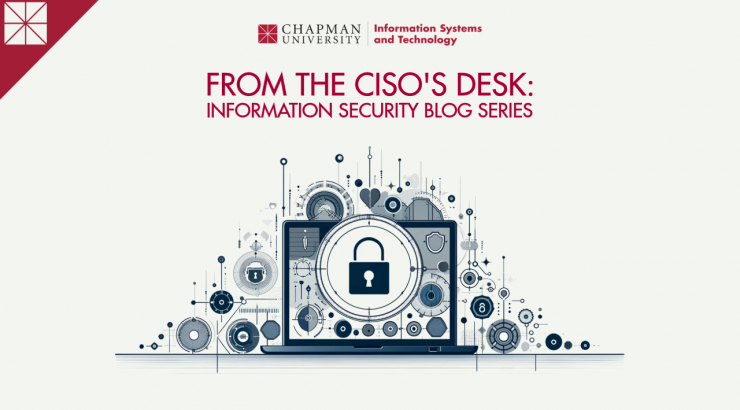
Why 2-Factor Authentication (2FA) Matters
June 14, 2024
As the Chief Information Security Officer (CISO) of Chapman University, I cannot emphasize enough the critical role that 2-Factor Authentication (2FA) plays in safeguarding our digital ecosystem. In an era of rampant and sophisticated cyber threats, relying solely on passwords is like leaving our front door unlocked.
What is 2FA?
2FA is a security mechanism that requires users to authenticate their identity using two or more factors. These factors fall into three categories:
- Something You Know: Typically, this is your password or PIN.
- Something You Have: This could be a physical token (like a smart card or a mobile app-generated code).
- Something You Are: Biometric data (fingerprints or facial recognition).
Why We Implemented 2FA?
- Enhanced Security: 2FA adds an extra layer of protection. Even if an attacker manages to steal your password, they won’t be able to access your account without the second factor.
- Mitigation of Credential Theft: Phishing attacks and credential stuffing are rampant. 2FA significantly reduces the risk of unauthorized access, even if credentials are compromised.
- Compliance Requirements: Many regulations (such as GDPR, HIPAA, and FERPA) mandate 2FA for protecting sensitive data.
- Protection Against Insider Threats: 2FA prevents malicious insiders from wreaking havoc by requiring additional verification.
- Securing Remote Access: With the rise of remote work, 2FA ensures that only authorized users can access the university’s resources.
In our journey through the digital world, two-factor authentication (2FA) emerges as our vigilant guardian. It’s crucial that we adopt it with enthusiasm, safeguarding our community and bolstering the security framework of our university. It is also important to note that SMS codes might be vulnerable to interception. Therefore, it’s advisable to utilize the authenticator app recommended by Chapman University’s Information Security Office for enhanced protection.
Stay safe, stay vigilant!
Keith Barros
Chief Information Security Officer (CISO)

